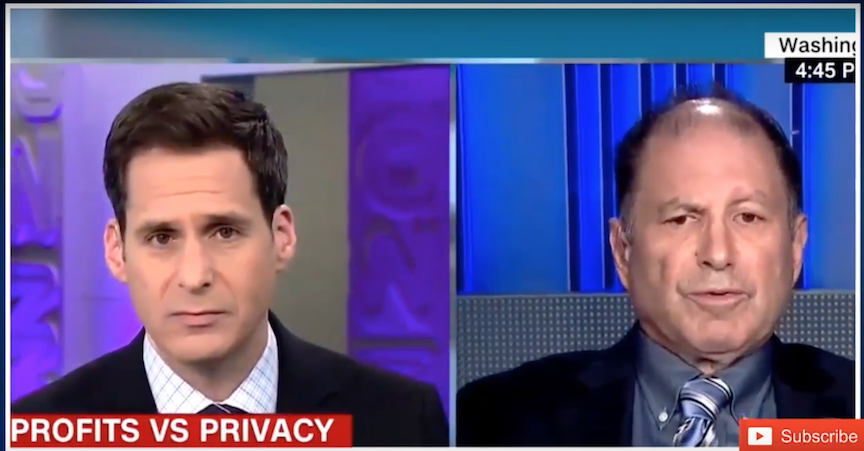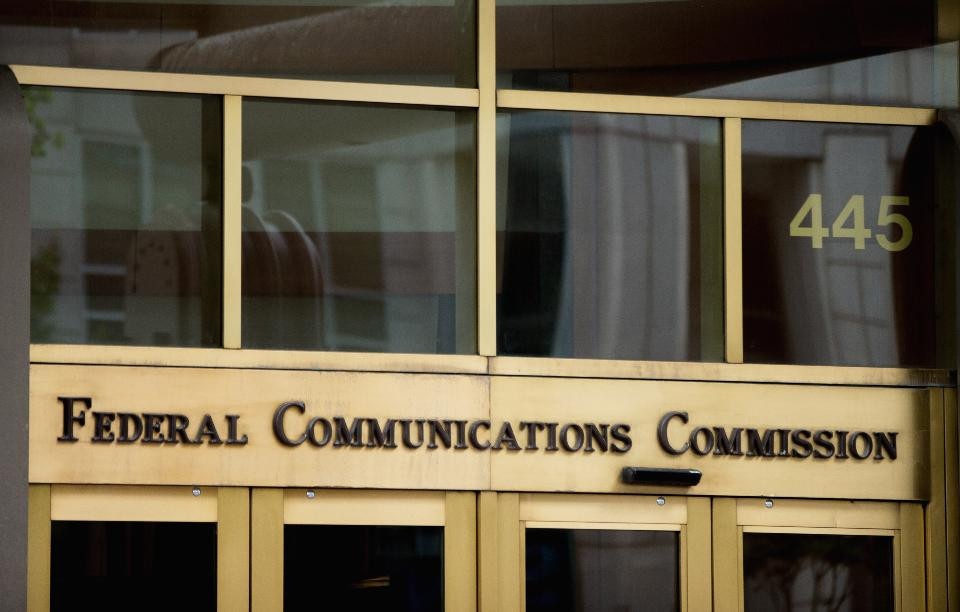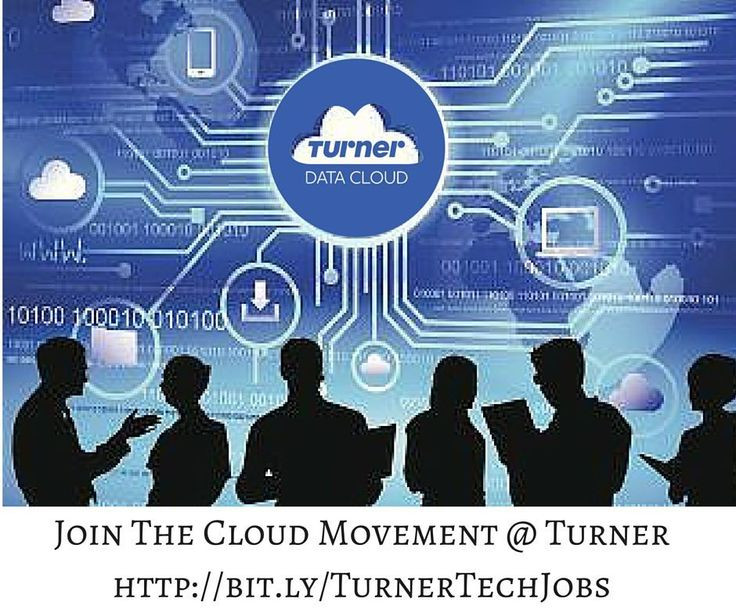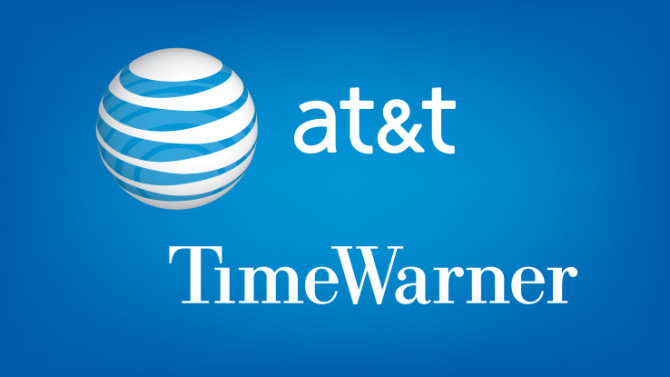
Publishings Digital Consumer
Program Areas
-
News
Groups Call on Facebook to Disclose and Explain Its Collection of Psychological Insights About Its Youngest Users
Facebook Told Marketers It Can Detect Teens Feeling 'Insecure' and 'Worthless'; Data Could Be Used to Drive Products Based on Mood and Using Manipulation
Facebook should immediately release all documents describing how it collected and analyzed psychological information it recently (link is external) collected about its youngest users, some as young as 14, and college students, Public Citizen and a coalition of 25 groups said in a letter (link is external) to the corporation today. The groups are concerned about how this information might have been used or may be used in the future by marketers and others to take advantage of young people’s emotions, all without users’ knowledge. Marketing companies and Facebook have secretly moved to tap into teens’ emotions and developmental vulnerabilities strictly for profit, the letter says. The groups want to know how the data was used, when it was used, how many users were impacted and the names of the companies that received the data. “What began as a way for college students to keep in touch has morphed into a platform for brand-saturated marketing and psychological manipulation,” said Kristen Strader, campaign coordinator for Public Citizen’s Commercial Alert campaign. “It is incumbent upon Facebook as a cultural leader to protect, not exploit, the privacy of young people, especially when their vulnerable emotions are involved.” According to The Australian (link is external) newspaper, Facebook presented research to one of its advertisers that shows it collects sensitive data regarding young users’ emotions and “mood shifts.” The research detailed how Facebook can analyze sensitive user data in real time to determine how young users are communicating emotion, and at which points during the week they are doing so, the letter continued. Facebook’s research was conducted without users’ knowledge, which raises ethical concerns. “Because Facebook plays such a powerful role in the lives of teens, it must adopt a policy that respects and protects them,” said Dr. Kathryn Montgomery, professor of communication at American University and a consultant to the Center for Digital Democracy. “This should include not only strong safeguards for its advertising and data practices, but also clear limits on the kinds of research it conducts for marketing purposes. Under no circumstances should marketers be using emotional states, stress levels, biometric information or other highly sensitive data to target users. And this should apply to both young people and adults.” “Facebook needs to come clean and publicly release the full internal document, reported in The Australian, describing how Facebook collected and analyzed psychological information on high school students, college students and young users, said Finn Lützow-Holm Myrstad, European Union co-chair of the Transatlantic Consumer Dialogue. “The burden of proof is on Facebook to document publicly that they don’t collect and use such information. We are concerned that companies don’t overreach and abuse their users’ fundamental right to privacy and data protection.” The public, its users and elected officials have a right to know how pervasive this research was, who was affected and how the company will ensure it does not occur again, the groups said. The only way to fully address those concerns is to publicly release the internal document and related materials, accompanied by a more detailed explanation from Facebook of what was intended, what happened and the company’s actual practices, the letter says. —30— --- See full PDF of letter to Facebook below. -
Blog
U.S. Privacy Dealt Major Set-back as Broadband Protections are Overturned by Congress and President Trump
An explosion of digital surveillance is coming.
President Trump has killed the first real protections for commercial privacy that Americans have online. Phone and cable giants, allied with the GOP Congressional majority, have just voted to overturn the historic consumer-data safeguards adopted last year by the Federal Communications Commission (FCC). AT&T, Comcast, Verizon—the country’s dominant providers of high speed broadband—along with industry and Congressional GOP allies, intensely opposed the new FCC rule. Why? Merely because it gives Americans some say in whether their sensitive information, such as web browsing activity and geo-location, can be used for digital marketing purposes. That’s right. The new FCC safeguard that was tossed into the legislative waste bin merely says that ISPs must first ask for permission before they can take this personal data in order to target us. Such an “opt-in” approach, requiring prior informed consent, is heretical to digital marketers, whose profits depend on using all of our information without ever really having to ask to do so. Until the FCC stepped in, it was the Federal Trade Commission (FTC) that served as the primary federal agency handling Internet privacy. But unlike the FCC, which can readily issue regulations to protect the public, the FTC is constrained from doing so. More than three decades ago, the advertising industry successfully lobbied Congress to curb that agency’s rulemaking authority (during a fight over another media issue—whether there should be limits on children’s advertising). Primarily, the FTC can only punish companies that engage in “unfair” or “deceptive” acts—such as lying to customers about how they use or protect our information. But if a company writes a privacy policy that basically provides them with unlimited access to all our data—which is what they do—the FTC is basically powerless to do anything at all. Which is why the phone and cable giants—along with Google and Facebook—prefer the FTC. It provides the illusion of having actual oversight and limits, when really nothing much is possible. Under the FTC’s watch, Americans have just experienced an unprecedented loss of their privacy. In the last few years, for example, digital marketers have aggressively pushed the boundaries of what information they gather from us and how it can be used. Our offline and online data is now routinely merged, generating “profiles” that connect our street address to the “cookies” and other online identifiers provided by our digital devices. Our precise geo-location is also regularly captured by mobile phones and “apps” that stealthily send our whereabouts to online companies and retail stores. Massive one-stop data broker “clouds” have emerged that provide reams of information, including about our finances, health, political interests, ethnicity—sold to marketers large and small. Our data “profiles”—digital dossiers—have become invaluable corporate assets that are bought and sold in milliseconds by powerful computers scattered across the globe, our identities traded for profit, as if they are just another commodity. Ongoing advances in how data are analyzed and used—so called “Big Data”—is ushering in even more ways companies can more precisely determine who we are, what we do, where we go, and how we should be treated. The leading phone and cable broadband ISPs have made major investments in tapping into the latest “Big Data” techniques. For example, Verizon recently introduced “Smartplay,” which helps deliver “smarter advertising” by creating what it calls “individual viewer personas that capture viewing history, account profile details and other valuable data….” Comcast Labs employs “Big Data research teams” that have expertise in “machine learning algorithms, forecasting models, intelligent image and video search, automated scene analysis, voice biometrics, recommender systems, personalization, and deep metadata.” AT&T is relying on its “Consumer Insights Platform” team to turn “big data into big insights….” ISPs also partner with leading data providers, such as Acxiom and Oracle, to enhance the robust details they already have about their broadband and video service subscribers. The big ISPs have also been on a shopping spree, acquiring companies that further their digital data advertising clout. Verizon acquired AOL and is now in the process of buying Yahoo; AT&T bought the leading satellite TV company, DirecTV, in part because of its digital ad capabilities; it now wants to fold Time Warner into its empire. Comcast has swallowed up ad-tech companies such as Visible World, FreeWheel, and StickyAds (and its NBC subsidiary has also embarked on its own formidable data-driven ad initiative). It is precisely because ISPs provide us access to residential broadband or wireless networks that they have a unique window into our lives. While Google and Facebook have their own far-reaching capabilities, they are primarily ad-supported marketing companies. When we pay a (hefty) monthly subscriber fee for Internet access, we should not also be exposed to having our Internet provider capture every bit of information it can, let alone tie that data together with what we do when we use our mobile and gaming devices or watch TV. The FCC’s new privacy rule builds on the agency’s network neutrality policy requiring that companies providing access to the Internet must operate in a fair and nondiscriminatory manner. Long-standing safeguards for protecting the privacy of our voice conversations over the telephone network have been brought into the 21st century—and now it’s also our broadband communications that must be respected. (Network neutrality is also under threat of elimination by the Trump FCC.) The ISPs and ad industry lobbyists disingenuously claim that having the FTC protect consumer privacy for all Internet companies, including ISPs and data giants like Google, is the most effective approach. It would be so, perhaps, if the FTC had any real clout. Many of the companies and trade groups urging that the FTC replace the FCC as a privacy regulator have lobbied against giving the trade commission actual authority to do so. They cynically know that turning over our broadband privacy to the FTC will mean business as usual—more of our offline and online data endlessly flowing into sophisticated databases that provide advertisers and other commercial entities (and perhaps government) detailed actionable blueprints of our lives. It will also mean that the only real potential privacy protection Americans have had to make their own mind up about whom to share data with and for what purpose will be lost. The ISPs, data-marketing companies, and their supporters are also fighting against the privacy rule because they know we are also on the eve of a new era—the Internet of Things—that will generate even more personal information about us. In today’s digital era, data is power. And that power should be in the hands of the people—not those that wish to financially and politically benefit by harvesting our information. --30-- President Trump has killed any hope that Americans would enjoy basic privacy protections online. By signing the bill, Mr. Trump has allied himself with the telecommunications and digital media giants who seek to profit from every detail of our lives. This is a betrayal of the American people and an insult to our democracy. All that the FCC safeguard did was to require cable and phone companies to ask for permission before they could profit from a person’s most sensitive information—including that individual’s web browsing, geo-location, financial details and data on children. President Trump helped the special interests and abandoned American families. Mr. Trump directly benefited from the absence of any federal privacy law or rule that protects having our information easily made available to commercial interests. His senior counselor Steve Bannon has been paid by and has investments in data-marketing firm Cambridge Analytica, which helped the Trump campaign. Mr. Bannon would have understood that the new federal privacy protections would enable the public to restrict the flow of commercial data going to political campaigns. We find this potential conflict of interest troubling, and it requires further scrutiny. (Kellyanne Conway was also a Cambridge Analytica consultant.) While today’s action by the president ends the FCC broadband privacy rule approved last October, we believe the public has also won something significant. For the first time, millions of Americans have been informed that they have little or no privacy on the Internet and when they use their mobile devices. Moreover, we have assembled one of the largest public-interest coalitions ever to advance consumer privacy protections. Many policymakers—on both sides of the aisle—have declared themselves as advocates for stronger protections. We will be back. But today, President Trump has given America a digital black eye before the world—a world in which most advanced nations understand that personal privacy is a fundamental democratic right. - Jeff Chester is executive director of the Center for Digital Democracy, a Washington-DC-based consumer digital rights group. -
News
A Big Win for Commercial Surveillance on the Internet -- a Gigantic Loss for Democracy
US Citizens and Consumers left further exposed to unfair and discriminatory data practices.
The following can be attributed to Katharina Kopp, Policy Director, Center for Digital Democracy. --- Today’s House vote to overturn the first major Internet privacy protection for Americans, may be a win for ISP monopolies, but it’s a tragic loss for our democracy. Broadband providers, such as AT&T, Comcast and Verizon, will now be able to sell our sensitive information to the highest bidder without first receiving our permission. We believe today’s misguided vote will unleash even more “Big Data” profiling and tracking of Americans, and spur an array of discriminatory practices. Without any restraints, ISPs will dramatically erode what should be an important American fundamental right—that of privacy. If President Trump allows this bill to become law, his Administration will place new burdens on hard-working Americans and their families—who will be at the mercy of a handful of digital giants. CDD and our allies, here and in the EU, pledge to continue our fight against the special interests that have gained new ways to control how we use the Internet and other digital media. Contact: Jeff Chester Executive Director Center for Digital Democracy Washington, DC. www. democraticmedia.org jeff@democraticmedia.org (link sends e-mail) 202-494-7100 -
Blog
Americans Lose Privacy Rights in Senate Vote
Now will be exposed to ongoing commercial surveillance of their most personal information
Americans lost a crucial right today as the GOP-controlled Senate voted to overturn the only federal protection that could have protected their privacy online. This is a key victory for lobbyists from the ISP monopolies, such as AT&T, Comcast, and Verizon. These companies have built a “Big Data" business model to track—and profit from—our every move online. Today, Americans who use personal computers, mobile phones and other online devices are the victims of continuous monitoring of their digital activities. Internet companies know where we shop, what we buy, who are friends are, how we use multiple “screens" and much more. ISPs have also acquired the power to take our data and generate powerful insights that can be used in far-reaching ways. Without the FCC rule, American ISP customers will have no real privacy protections because of current limitations placed on the Federal Trade Commission by Congress and the courts. The FCC rule would have been the first new commercial privacy protection for Americans since Congress passed the Children’s Online Privacy Protection Act (COPPA) in 1998. Under the FCC safeguard passed last October, a subscriber would first have to give consent—opt-in—before their most sensitive data (such as geo-location and web browsing activities) could be used in digital dossiers designed to deliver targeted marketing. It’s clear that the GOP Senate, the big broadband companies, and major advertisers were terrified of having to ask American consumers permission before using their information. Today’s vote should trigger the European Union to begin reviewing the so-called “Privacy Shield” agreement that allows data to flow between the EU to the U.S. Today’s decision puts our trading partners—and the U.S. companies that depend on the flow of information—at risk. We will ask our EU consumer colleagues to press the European Commission to revoke the “shield." Today’s Senate vote was also a key learning moment for Americans, who heard from Sen. Ed Markey and others concerning what is at stake as broadband companies now gain a front-row seat to gather and sell our personal information. Even if the new FCC rule is overturned by the House and signed by the President, there will be an ongoing campaign to expose the powerful data-gathering apparatus that is being assembled by the phone and cable broadband companies. Jeff Chester CDD is a consumer digital rights group based in DC. -
Blog
Statement on Edith Ramirez resignation
Leaves a strong consumer protection legacy for 21st Century
Edith Ramirez brought the FTC into the 21st century. Under her leadership, the agency made it clear that new technologies had to treat consumers fairly, including when it came to protecting their privacy. Through enforcement, litigation, and publicly exposing new threats, Edith Ramirez’s commission has created a unique consumer protection legacy that will have a long-lasting and positive impact. Ramirez’s tenure has also been marked by a strong commitment to protecting economically vulnerable and other at-risk consumers, including those who reflect the country’s diversity. More than any other federal agency, Ramirez’s FTC understood how the emerging “Internet of Things”—where we are always connected online—provided both a promise and a threat. Through a series of cutting-edge cases—Snapchat, (link is external) D-Link (link is external), inMobi (link is external) and Turn (link is external), for example—the commission made it clear that tech companies that deceived consumers or failed to protect their security would be punished and publicly shamed. Companies, including Amazon (link is external), Google (link is external) and Apple (link is external), that failed to ensure that consumers who purchased apps had been treated fairly had to change their practices. New and deceptive ways in how companies advertise to the public also came under her scrutiny, including the role of “influencers.” Cases included Machinima (link is external) and Warner Brothers (link is external), for example. Ramirez assembled a highly effective and strategic consumer protection team, led by bureau director Jessica Rich. The commission played a major role in the $10 billion settlement with Volkswagen (link is external), and also pursued cases where vulnerable consumers had been financially harmed (such as DeVry (link is external) University and Cancer Fund of America (link is external)). It also took on challenging cases to make it clear that the agency had the authority and responsibility to proactively act in the best interests of consumers (e.g., Wyndham, (link is external) Herbalife, (link is external) and Lifelock (link is external)). Ramirez cast a spotlight on emerging privacy issues involving “smart TV’s,” cross-device tracking, and other technologies. The agency also created a new Office of Technology Research and Investigations, within the Bureau of Consumer Protection, to stay on top of digital media and data developments. Finally, Edith Ramirez understood that all Americans require effective consumer protection. Under her leadership, the FTC expressly reached out to Hispanics, African Americans, and others in order to involve them in the work of the commission. Jeff Chester, CDD -
Blog
Americans Win Significant Broadband Privacy Rights in Historic FCC Decision
Consumers should now have greater control of their information in today’s “Big Data” era
Statement of Jeff Chester, executive director, Center for Digital Democracy October 27, 2016: The Federal Communications Commission, led by Chairman Tom Wheeler, delivered a very early Christmas present to Americans today. For the first time, the public will be guaranteed that when they use broadband to connect to the Internet, whether on a mobile device or personal computer, they will have the ability to decide whether and how much of their information can be gathered and used by Internet Service Providers (ISPs) without first getting their consent. This is a tremendous public interest breakthrough for privacy rights in the U.S., which lags behind nearly every other democracy when it comes to protecting online privacy. Today’s decision (link is external) provides a new crucial consumer protection safeguard. When consumers use a mobile app or engage in search, that information cannot be stealthily monitored and used by their ISP without a person first agreeing it can do so (known as opt-in). Such information is classified by the commission as “sensitive” data and triggers a set of rights for the consumer. The new rule is a critical building block for better protecting our privacy in this period of growing commercial surveillance, and should significantly curtail the ability of ISPs to stealthily monitor our activities. The handful of phone and cable giants that dominate the broadband telecommunications market are increasingly using sophisticated data-mining techniques to track and analyze their customers, whether at home or—via a mobile phone—on the go. This new rule will help ensure that a consumer’s most personal information—about their finances, health, geo-location, children—will not be swept into this far-reaching apparatus. Safeguards to prevent unfair “pay-for-privacy” schemes are also part of this new FCC order—and we expect the commission to be vigilant to make sure consumers aren’t forced, because of financial circumstances, to give up their privacy. The 3-2 vote is also a rejection of the intense lobbying conducted by the phone and cable lobby, as well as by other Internet giants, to effectively kill the plan. They aggressively lobbied to weaken the FCC’s proposal, disingenuously arguing that the commission should merely adopt the Federal Trade Commission’s privacy regime. They preferred the FTC’s approach because it doesn’t have any real legal teeth, and has allowed Internet giants to freely gather and use our data without any regard to our privacy. One reason that Americans face a crisis today in terms of their loss of privacy is because the FTC has been prevented from having the regulatory authority to actually protect the public. The very same companies calling for its approach have tirelessly worked to undermine its authority, in Congress and the courts. CDD would have preferred an earlier version of the commission’s privacy proposal that didn’t make distinctions between sensitive and non-sensitive data. This is a concept that is increasingly irrelevant today, because of technological advances in “Big Data” analytics and the massive growth of consumer data across all devices, where innocuous data can be used to generate highly personal and sensitive details. But today’s FCC decision is a critical advance in protecting our information. This decision sets the stage for a long-overdue debate on the need also to protect the privacy of Americans who use other online services, including Google and Facebook. It sets a critically new privacy baseline, which should lead to action by Congress that provides strong privacy protections for all of us, regardless of the devices or online services we use. These rules also need to be applied to any plans by AT&T and Time Warner to expand their commercial data activities under their proposed merger. Finally, this victory would not have been possible without the FCC’s Open Internet decision (network neutrality). That triggered this privacy review, so that long-standing privacy safeguards when we use our telephones was brought up to date. A truly open and democratic Internet requires one that incorporates robust privacy safeguards. Today’s decision is step one in helping achieve that important goal. -
Blog
Time Warner's "Big Data" Cloud"--what they bring to AT&T Deal
Most Powerful Data Co's as "Turner Broadcasting Aligns with Epsilon, Krux and Oracle to Power New Turner Data Cloud and Turner Premium Marketplace"
Turner Broadcasting is partnering (link is external) with Epsilon, (link is external) Krux (link is external)and Oracle to enable advertisers and their agencies to connect to the Turner Data Cloud (TDC), the company’s advanced data management platform (DMP) originally announced at the company’s Upfront last month. Through these advanced third-party targeting capabilities along with Turner’s own proprietary data sources, TDC will aggregate and analyze first-and third-party data to provide advertisers, agencies and Turner itself more effective methods to reach and engage target audiences. “We are joining forces with industry-leading data and technology companies to power the Turner Premium Marketplace powered by an unrivaled central repository of data,” said Stephano Kim, Chief Data Strategist, Turner Broadcasting. “Fueling multi-screen ecosystems, Turner Premium Marketplace will enable our sales divisions to take their client conversations to a new level of insight and strategy to more effectively execute advertising campaigns across Turner’s portfolio. Brands advertising on Turner properties now have the enhanced ability to reach the most appropriate and desirable audiences across all user experiences wrapped in our premium content.” The Turner Premium Marketplace includes both digital and linear advertising campaigns across the company’s portfolio of entertainment, news, sports and kids brands. Advertisers and their agencies can choose to transact directly and programmatically depending on their unique campaign goals and business objectives. Through the Turner Data Cloud, advertisers can harness the power of their first party data in addition to third party data to effectively engage consumers and reach the right audience across Turner – a portfolio spanning television, digital and mobile platforms that reaches approximately 75% of all Americans. In addition to providing stronger advertising solutions, TDC will allow for better personalized consumer experiences across Turner’s own multiscreen brand destinations. “Turner Broadcasting is at the forefront of the evolution of content distribution,” said Andy Frawley, chief executive officer of Epsilon. “To enable the strongest possible brand experience for a consumer, it is imperative to leverage the power and value of data to drive marketing, advertising and programming to better connect the consumer’s experience and engagement. We look forward to leveraging our full suite of Big Data capabilities to support the Turner Data Cloud.” "The Turner Data Cloud is another industry-leading move by Turner, and we're proud that Krux's real-time DMP is at the center of this solution,” said Krux CEO Tom Chavez. "Through Krux, Turner is unifying people data across all channels and employing unparalleled identity management to activate highly specific audiences across linear and digital campaigns. What’s more, with Krux’s iterative learning capabilities, Turner advertisers can apply real-time campaign optimizations to drive higher conversions.” "Oracle Data Cloud (link is external) is thrilled to collaborate with Turner to help their clients understand more about consumers based on what they do, say, and buy, enabling them to personalize and measure every customer interaction in order to maximize the value of their digital marketing,” said Omar Tawakol, GM of Oracle Data Cloud. "Our relationship with Turner will allow their clients to spend confidently knowing that their ads can be reliably delivered to the right consumer across screens." -
Blog
need-to-know 1084
AT&T: “cross-device connections allow AT&T to understand that a single user is accessing AT&T services from multiple devices, and to synchronize content and advertising messages across those devices....”We have data coming from 35 million set-top boxes...There’s a long list of people we partner with, like Experian, Acxiom, Kantar and Polk."
excerpt from recent interview (link is external)with Rick Welday, president of AT&T AdWorks, 13 October 2016. ...AT&T is doubling down to understand the network effect of its merged mobile carrier and pay TV footprint. And it plans to up its investment in video programming by acquiring more of the content supply chain...Cross-screen targeting is also a big imperative. AT&T just completed a series of targeting pilots to measure the impact of addressable TV ads served to 14 million AT&T-DirecTV households and 30 million associated devices….AT&T has the opportunity to be the first fully integrated carrier in the United States. You’re taking a large MVPD, pay-TV provider and a scaled mobile and broadband business and bringing them together, and that’s unique. Today, we help advertisers place an ad based on interest or demographics in any one of 14 million households regardless of what they’re watching or when, whether it’s live or on playback. ...When the DirecTV merger completed, we had 12 million addressable households. We’re now [at] nearly 14 million. For us to have grown addressable households by 2 million shows our commitment. Out of those 14 million homes, we can identify about 30 million devices that are associated and help marketers identify their target audience across them without sharing personally identifiable information. Do you have a data management platform that would help you track consumer movement? We have data coming from 35 million set-top boxes, so we have incredible first-party data capabilities. We have to have a deep technical ability and transparency with our clients about where and when the ads get placed. Clients are more interested in making sure the ad gets to their targeted audience, but we still share information about the content and day part where the ad fired. Usually the client connects their data to a safe haven, where we’d [also include] our inventory and see where there’s overlap. Then we’d render the ads. There’s a long list of people we partner with, like Experian, Acxiom, Kantar and Polk. Where do you see the most opportunity for AT&T’s mobile data subscriber set? Will it, for instance, help close the loop between location, the in-store purchase and TV viewership? Right now we’re not using data from our mobile customers, but we’re well aware of the opportunity for them to consume more video solutions and advertising within our developing video services. We’re very excited about our ability to monetize through advertising within our mobile base. How that evolves, there’s nothing further we’d forecast or announce right now. Who is AT&T’s biggest competitor right now? Is it other telcos or are you keeping an eye on platforms with a large, logged-in user base like Facebook? There’s no question Facebook and Google are competitors. There is no shortage of options for advertisers. Everybody knows a lot of money is moving to the digital space. I think, for us, when we look at wwhere the growth is, it’s clearly going toward targeted, more audience-based advertising. Even in digital, growth is not riding on the backs of display or search advertising. It’s coming from mobile video. AT&T, having acquired DirecTV with the stated purpose of being an integrated carrier that specializes and leads and innovates in mobile video, that’s a good thing for us….When the DirecTV merger completed, we had 12 million addressable households. We’re now [at] nearly 14 million. For us to have grown addressable households by 2 million shows our commitment. Out of those 14 million homes, we can identify about 30 million devices that are associated and help marketers identify their target audience across them without sharing personally identifiable information. Excerpt 2: (link is external) The cross-device implications of an AT&T/Time Warner hookup are also clear: massive reach, distribution and data. It claims to have 141.8 million wireless customers in the US and Mexico, 15.6 million internet connections and 45.5 million video connections across DirecTV and U-verse. “It’s a significant audience, especially when you bring DirecTV into the mix, being able to use that data and that deterministic linking for more relevant messaging across all of those different sources, both owned-and-operated, and being able to take that outside of O&O across multiple channels and screen,” said Adelphic CEO Michael Collins. Both AT&T and Time Warner have deterministic user data across a wide array of channels. “They have it through DirecTV, they have it through AT&T’s ISP and AT&T’s television service and they have it through Time Warner’s wide distribution,” Collins said. “That’s sticky content and a very broad audience, and it’s all done on a deterministic basis, which makes it pretty powerful. I don’t know if you’d say it’s unique, but it’s certainly highly differentiated.” AT&T is already schooled in the ways of cross-device. Its privacy policy very clearly states that it uses both Tapad and Drawbridge “to establish connections between a user’s devices and to provide behavioral targeting across devices,” noting that “cross-device connections allow AT&T to understand that a single user is accessing AT&T services from multiple devices, and to synchronize content and advertising messages across those devices.” It’s only logical that AT&T will take its cross-device program to the next level with Time Warner on board. “One would have to imagine that Time Warner and AT&T are looking to bring content and distribution together for seamless distribution and content across screens,” Collins said. “But marketing and advertising are evolving as well, and the potential combination of Time Warner and AT&T would give them knowledge, insight and the ability to deliver highly relevant advertising on behalf of advertisers.” -
Blog
CDD Statement on AT&T/Time Warner Deal
"Big Data" driven merger raises threats to consumers, subscribers and competitors as mega-giant will gather our data from PCs, mobile devices and TVs
This proposed deal raises major challenges for consumers, subscribers and competitors. It reflects the “Big Data” and digitally data-driven imperatives that are reshaping the U.S. media system. Giant broadband ISP networks, such as AT&Ts, and content providers as Time Warner, want to join together to both deliver programming and continually gather a host of information about each and every consumer. A new stranglehold is being placed on our communications landscape, as already dominant cable and telephone monopolies devour former partners or competitors (Verizon/AOL/and now Yahoo!, for example). This is all about tracking and targeting us regardless of whether we use a mobile device, PC or TV. Through the growing capability of mobile phones to follow and geo-target us everywhere we go—the supermarket, while in a car, or even on the street, these new broadband ISP/mobile/TV giants are extending their powerful digital tentacles further into our lives. While some programmers and large advertisers will benefit, the deal raises a host of consumer concerns, including about privacy. It’s no surprise that AT&T is bitterly opposed to the privacy safeguards up for a vote this coming Thursday at the FCC. They don’t want any potential new rules that empower consumers to control what they hope will be a massive influx of data they plan to monetize. Today’s announcement underscores why the FCC should pass Chairman Wheeler’s plan. Antitrust and consumer protection regulators must use a 21st Century framework that ensures that the public has a fair, diverse and equitable digital media system. Those companies that control our data--as well as the devices and applications we rely on (especially mobile)--will be formidable gatekeepers. They will be able to influence the content and communications we both receive and send. It's not to far out to see the next deal be Google/Comcast or AT&T/Time Warner/Facebook. AT&T's recent buying spree, including DirecTV (link is external), gives it a formidable cross-screen presence. As one of the handful of dominant broadband Internet Service Providers, it provides critical network connections to millions of Americans, as well as multichannel video service. It is investing to expand this empire, including video streaming (link is external) and the Internet of Things (link is external). Now it will have both Big Data and Bug Bunny, as well as HBO, CNN and a myrid of other properties. All to lure us to sit back, subscribe, view, interact with the ads on all our devices, engage with branded experiences and--yes--for this even bigger digital giant to gather and sell off our data on behalf of big brands and vested interests. statement of Jeff Chester, executive director





